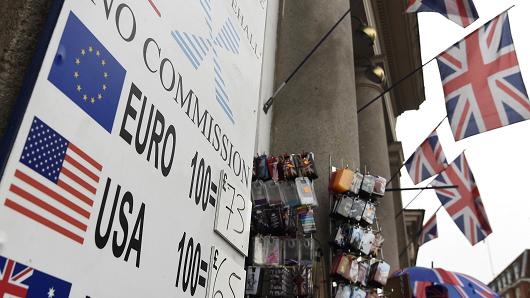Opinion: The UK will get a bad trade deal from the US

Borderlex | 17 March 2017
Opinion: The UK will get a bad trade deal from the US
by Christofer Fjellner
There is little reason to doubt that the United Kingdom will sign a free trade agreement with the United States once outside the EU. But there is not going to be that much into it for British businesses. This is because the UK will be the weaker party in the talks, reckons Christofer Fjellner.
Brexit negotiations will soon begin. British Prime Minister Theresa May has spoken: The United Kingdom will leave the EU single market as it leaves the European Union.
Instead, she will seek new free trade agreements with the EU and other partners, especially the United States. She stretched out a hand to incoming US president Donald Trump and iterated that Britain will now be at the ‘front of the queue’ for US trade deals.
UK ‘front of the queue’
Many commentators say it will be difficult for Britain to strike a trade agreement with the US. I beg to differ. I believe that the UK and the US will be able to strike a trade deal, but having worked with trade negotiations for over twelve years, I expect it to be a bad one for the United Kingdom.
The UK will have to tear down trade barriers and follow and take legislation from Washington rather than Brussels while not getting much back. Time and their negotiating position are simply not on their side.
The road to the UK-US trade negotiating table is long. There are many hurdles to overcome first. Firstly, the UK will have to settle its terms with the European Union in the negotiations under Article 50. Although, they will be leaving the single market it is not clear exactly how their regulatory independence will look like. Furthermore, the UK will have to finalise all its commitments to the World Trade Organization. The major part of this will be an easy exercise as they can have the same tariffs as the EU. But the negotiations on separating agricultural tariff-rate quotas will surely be difficult and if there is anything we know from multilateral trade negotiations it is the fact that it takes time for 163 members to agree.
Still, there is significant political pressure for the UK to deliver a deal with a close partner such as the United States. Delivering a deal on time will also show that Britain can deliver new trade agreements as an independent party. But that does not mean it will be a good deal for the United Kingdom.
Everybody knows that free trade is mutually beneficial and most politicians pay lip service to this. But anyone who knows the nature of trade negotiations knows that they do not work that way. Trade negotiations are an exercise in mercantilist haggling where each part tries to get the other one to remove their trade barriers while keeping their own. The negotiating dynamics and outcome depend on the parties’ position.
Weaker party in asymmetric relationship
In a US-UK negotiation, it is Washington that will be in the driving seat. Usually, the larger trading partner sets the agenda and forces the other to change its rules. Two cases in point are the ambitious trade agreements that the European Union have done with Canada and South Korea that have forced Canada and South Korea to change several laws while the EU has changed none as a consequence of the agreements. This time, the UK will have to change legislation and tear down barriers while the US will tear down virtually none. Timing will also not be on Britain’s side – London will be under political pressure to deliver a large agreement and a larger share of its trade liberalised.
So this will be an asymmetric agreement. Market access to the US in financial services, and manufacturing, especially in the automotive sector, are two of the the UK’s offensive interests. On financial services, Britain will lose their passporting rights to the EU as a consequence of Brexit. But the US has been very reluctant to accept access in financial services and regulatory cooperation in the financial sector in trade negotiations. Manufacturing, especially the auto sector, is sensitive in the US; it is becoming increasingly so with the Trump administration calling for import tariffs on cars not manufactured in the US.
In the end, this may turn into everything that the eurosceptics have been opposing. The rules on standards, on food safety, on labour, and on environmental protection will be set by a foreign country, albeit not in Brussels but in Washington. This should lead to significant opposition: British trade-sceptic NGOs such as Oxfam are among the most vocal in Europe.
In the end, we will most probably see both a trade agreement between the UK and the US and one between the UK and the EU. But, the negotiating position poises them to be two bad ones for the United Kingdom gaining little market access at a high cost. The trade agreement might be seen as a political success but content-wise, it will offer few opportunities for British businesses.
Christofer Fjellner is a Swedish MEP (EPP) and a regular columnist at Borderlex





